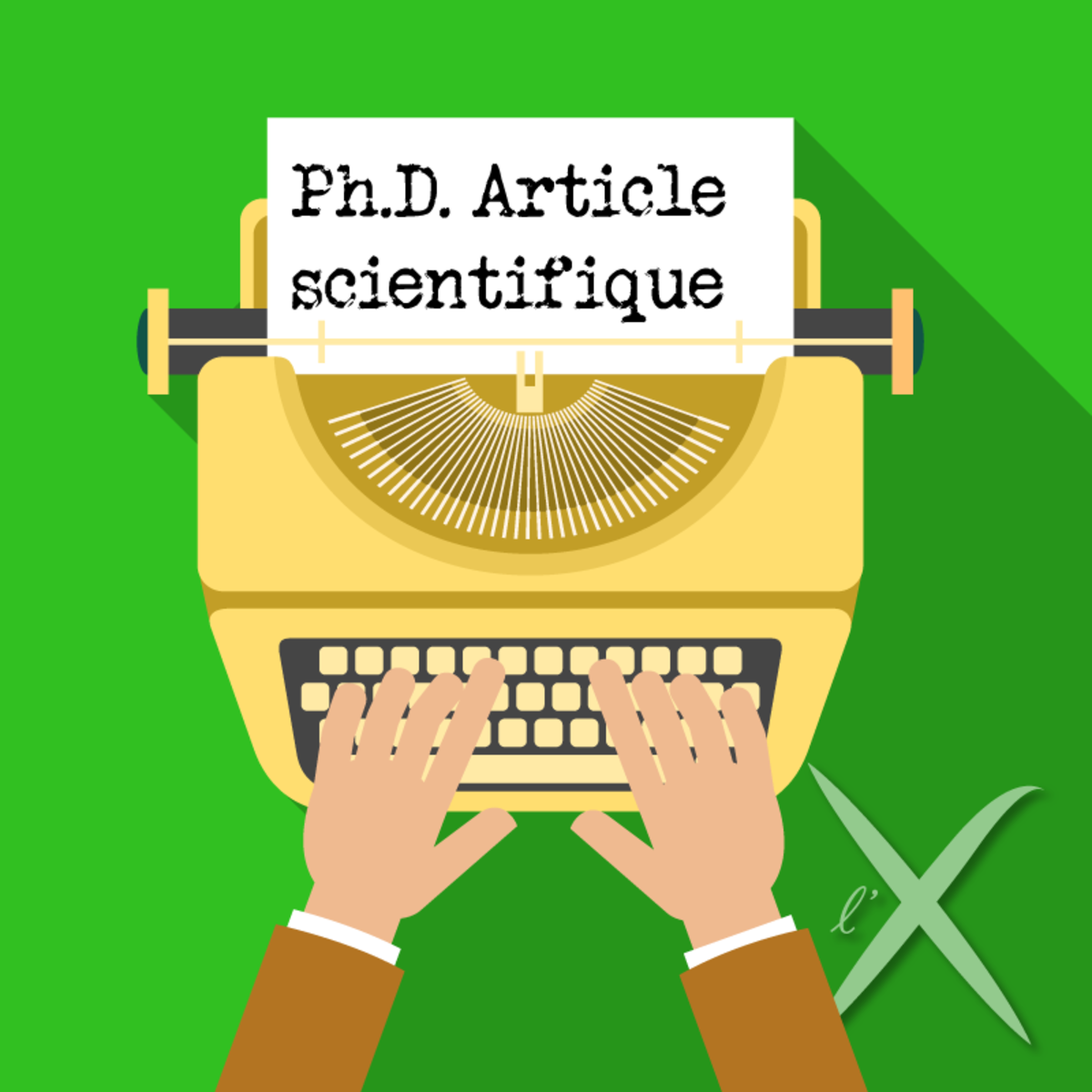
A l’issue de ce cours, vous serez capable de :
- de comprendre le contexte et les règles de publication scientifique
- de mettre en oeuvre les techniques d’écriture d’un article scientifique
- de faire le choix du journal pertinent, en fonction de votre domaine, sujet et objectif
- utiliser une « checklist » et auto-évaluer votre travail
Les prérequis :
Ce cours s’adresse à toute personne en doctorat - quel que soit votre niveau d’avancement - ou ayant déjà achevé un doctorat
Read more
A l’issue de ce cours, vous serez capable de :
- de comprendre le contexte et les règles de publication scientifique
- de mettre en oeuvre les techniques d’écriture d’un article scientifique
- de faire le choix du journal pertinent, en fonction de votre domaine, sujet et objectif
- utiliser une « checklist » et auto-évaluer votre travail
Les prérequis :
Ce cours s’adresse à toute personne en doctorat - quel que soit votre niveau d’avancement - ou ayant déjà achevé un doctorat
A l’issue de ce cours, vous serez capable de :
- de comprendre le contexte et les règles de publication scientifique
- de mettre en oeuvre les techniques d’écriture d’un article scientifique
- de faire le choix du journal pertinent, en fonction de votre domaine, sujet et objectif
- utiliser une « checklist » et auto-évaluer votre travail
Les prérequis :
Ce cours s’adresse à toute personne en doctorat - quel que soit votre niveau d’avancement - ou ayant déjà achevé un doctorat
Il s’adresse également à tout étudiant en fin de master dans le but d'affiner votre projet professionnel et académique.
Ce cours a été créé par des doctorants ayant déjà de l'expérience dans la recherche académique.
*About Project-Centered Courses:
Project-Centered Courses are designed to help you complete a personally meaningful real-world project, with your instructor and a community of learners with similar goals providing guidance and suggestions along the way. By actively applying new concepts as you learn, you’ll master the course content more efficiently; you’ll also get a head start on using the skills you gain to make positive changes in your life and career. When you complete the course, you’ll have a finished project that you’ll be proud to use and share.
What's inside
Syllabus
Comprendre le monde académique
Dans cette section, vous apprendrez quels sont les éléments essentiels précédent l'écriture d'un article : le contexte de publication. Vous apprendrez à découvrir votre communauté, au travers de différents exemples, et nous vous présenterons comment les journaux scientifiques et la publication fonctionnent. Nous conclurons la section par l'éthique encadrant le monde académique.
Read more
Syllabus
Good to know
Save this course
Reviews summary
Scientific writing and scientific publishing (project-centered learning)
Activities
Lire le manuel de publication de l'APA
Show steps
Lire le manuel de publication de l'APA vous aidera à rafraîchir vos connaissances sur les normes de publication académique.
Browse courses on
APA
Show steps
-
Téléchargez le manuel de publication de l'APA.
-
Lisez la section sur le formatage des articles de revues.
-
Lisez la section sur les références.
Lire le livre « Écrire pour être publié » de Robert Day
Show steps
Le livre « Écrire pour être publié » de Robert Day fournit des conseils pratiques sur l'écriture d'articles scientifiques.
Show steps
-
Achetez le livre « Écrire pour être publié ».
-
Lisez le chapitre sur la structure d'un article scientifique.
-
Lisez le chapitre sur l'écriture d'un résumé.
S'entraîner à utiliser un logiciel de gestion bibliographique
Show steps
S'entraîner à utiliser un logiciel de gestion bibliographique vous aidera à gérer efficacement vos références.
Browse courses on
Zotero
Show steps
-
Téléchargez un logiciel de gestion bibliographique.
-
Importez vos références dans le logiciel.
-
Créez des citations et des bibliographies.
Show all three activities
Lire le manuel de publication de l'APA
Show steps
Lire le manuel de publication de l'APA vous aidera à rafraîchir vos connaissances sur les normes de publication académique.
Browse courses on
APA
Show steps
- Téléchargez le manuel de publication de l'APA.
- Lisez la section sur le formatage des articles de revues.
- Lisez la section sur les références.
Lire le livre « Écrire pour être publié » de Robert Day
Show steps
Le livre « Écrire pour être publié » de Robert Day fournit des conseils pratiques sur l'écriture d'articles scientifiques.
Show steps
- Achetez le livre « Écrire pour être publié ».
- Lisez le chapitre sur la structure d'un article scientifique.
- Lisez le chapitre sur l'écriture d'un résumé.
S'entraîner à utiliser un logiciel de gestion bibliographique
Show steps
S'entraîner à utiliser un logiciel de gestion bibliographique vous aidera à gérer efficacement vos références.
Browse courses on
Zotero
Show steps
- Téléchargez un logiciel de gestion bibliographique.
- Importez vos références dans le logiciel.
- Créez des citations et des bibliographies.
Career center
Technical Writer
Science Writer
Journalist
Copywriter
Web Content Writer
Content Writer
Novelist
Freelance Writer
Newspaper Reporter
Academic Editor
Magazine Editor
Chief Editor
Ghostwriter
Public Relations Writer
Research Writer
Reading list
Share
Similar courses
OpenCourser helps millions of learners each year. People visit us to learn workspace skills, ace their exams, and nurture their curiosity.
Our extensive catalog contains over 50,000 courses and twice as many books. Browse by search, by topic, or even by career interests. We'll match you to the right resources quickly.
Find this site helpful? Tell a friend about us.
We're supported by our community of learners. When you purchase or subscribe to courses and programs or purchase books, we may earn a commission from our partners.
Your purchases help us maintain our catalog and keep our servers humming without ads.
Thank you for supporting OpenCourser.


